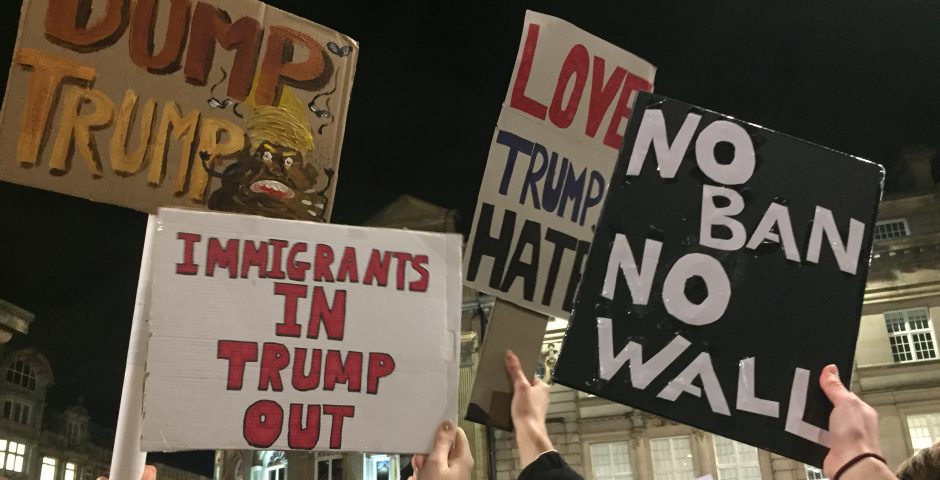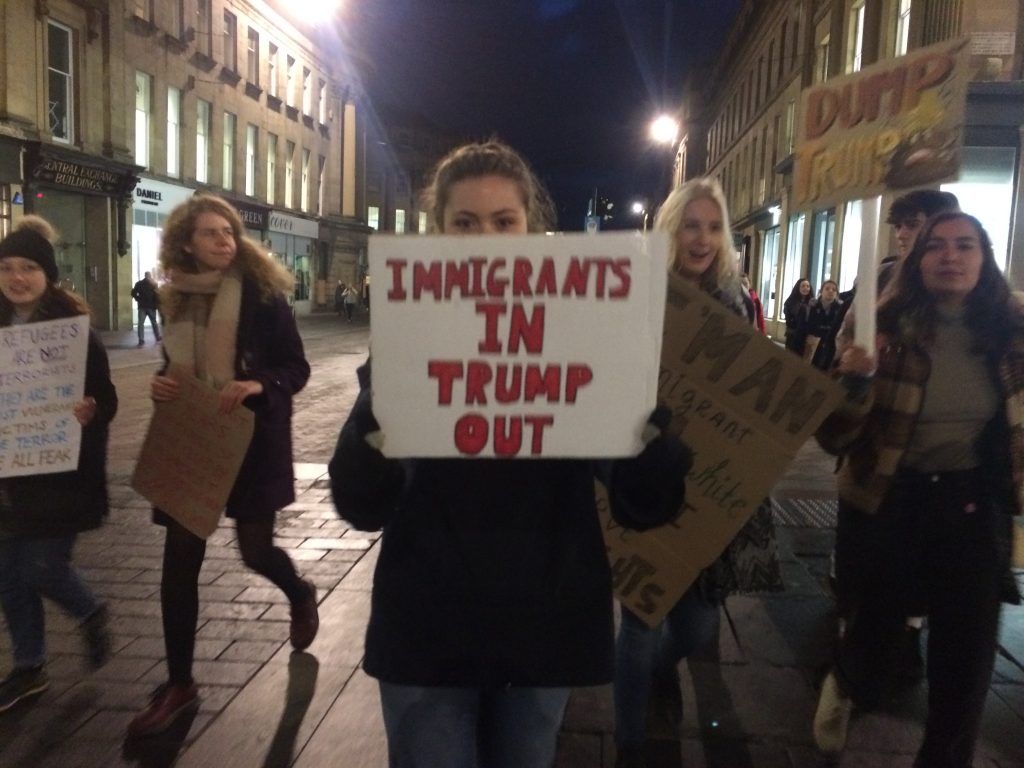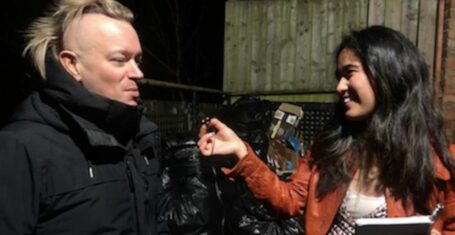
We spoke to the Durham students who protested Trump’s refugee ban
“I’m from Iraq. I can’t go to the USA any more.”
As night swept through the streets of Newcastle yesterday, over a thousand people gathered to protest Donald Trump’s controversial ban.
Mingled in the rabble was a sizeable contingent of placard-wielding students from Durham University. With Trump churning out executive orders like a printing press, they have plenty to be angry about.
One Durham student, born in Iraq, was deeply troubled and insulted because she is no longer able to visit the USA.
Her voice was one of many; the rally around Grey’s monument brought a huge crowd together, with camera crews and police at the scene. We asked the Durham students there exactly why they had come out to protest.
Josiah Odigie, 2nd Year, Spanish and Italian, Cuth’s

“I believe that if you’re a bystander then you’re part of the problem. It’s very important to be vocal and active. Even if it just means you’re part of a statistic that people can wave in Donald Trump’s face and say, ‘this is how many people protested against you’.”
Katie Condon, 2nd Year, Combined Honours, Collingwood, and Chris Waters, 2nd Year, Music, Collingwood

Katie: “We’ve all been following what Trump’s being doing on his campaign and now during his presidency. It really makes me feel sick.”
Chris: “We have the extraordinary privilege of an education and at times it can feel incredibly frustrating being so far away from the point of being able to articulate that. I think this feels like doing the very minimum. Inaction is far worse.”
J Robert Michael Smith, Postgrad, Politics, Aidan’s

“It’s important that you can actually do something, and obviously people say, what’s the difference, but I think it shows that people do have the power. The idea is that we can continue to show that the student community is engaged in discussion, in protesting for an open, intersectional, and inclusive society.”
Sabrina Steuer, 1st Year, Liberal Arts, Cuth’s

“I’m a woman, I’m an immigrant, I’m exactly the kind of person that Trump would hate. I have a responsibility to come out and show my solidarity with all the people that he’s hurting with his bigotry and his ill-thought ideas.
“Protests have made international headlines ever since Trump was elected. When you’re the leader of the free world, your actions don’t just impact America.”
Daisy Pullman, 2nd Year, History and Politics, Chad’s and Alannah Travers, 2nd Year, History, Collingwood

Daisy: “I’m protesting Theresa May to take a moral stand. I understand there are pragmatic reasons to pursue a relationship with the US but I think when the President is targeting a specific religious minority and saying, ‘you are not welcome in this country’, then you have to take a stand.”
Alannah: “I’m here with Durham for Refugees. We wanted to be here to show solidarity. The sheer numbers are really important – I mean, look how many people are here.”
Sophi O’Connor, 4th Year, Modern Languages, Hild Bede

“This is an opportunity to protest not just Trump but Theresa May as well, and our government, which does exactly the same thing with deporting asylum seekers and migrants.
“This is a show of solidarity, a chance to make contact. It’s really cheering to see so many people out and about. It shows that students aren’t apolitical, they do care, and it gives people the motivation to come along to more events later.”
Freya , 1st Year, History, Cuth’s

“To be on the right side of history.”
Harry Cross, Postgrad, History and Politics, Aidan’s

“The shock at Trump’s policies and the speed at which they’re being implemented. I’m thrilled how many people from Durham are here.”
Gwynnethe Singh, 3rd Year, Psychology, Cuth’s

“I cannot call myself a feminist if I do not stand in solidarity against the ban. Banning people from a country based on their religion is a gross injustice, and it’s important to show that people from this country are against that.”

Newcastle City Centre was a sea of anti-Trumpness.









































